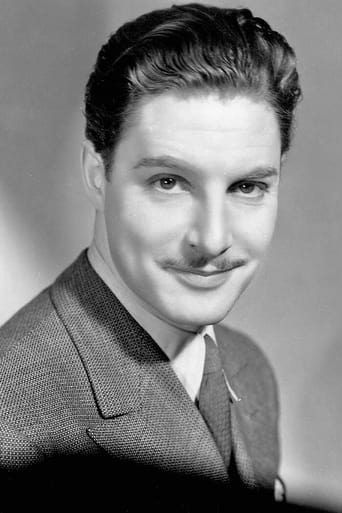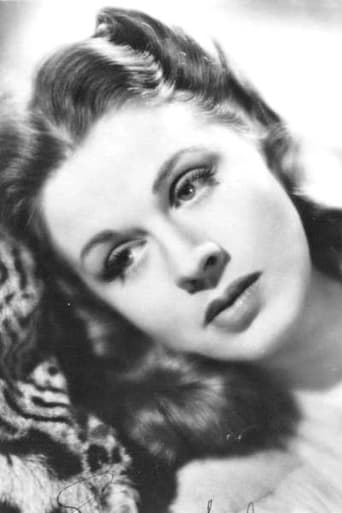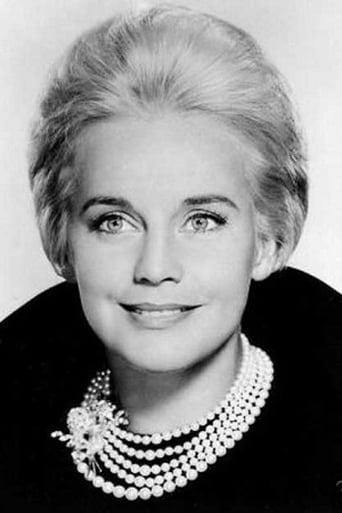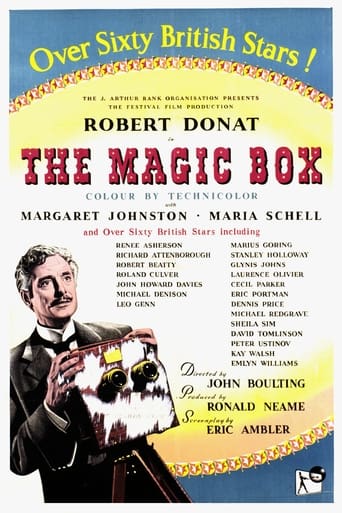
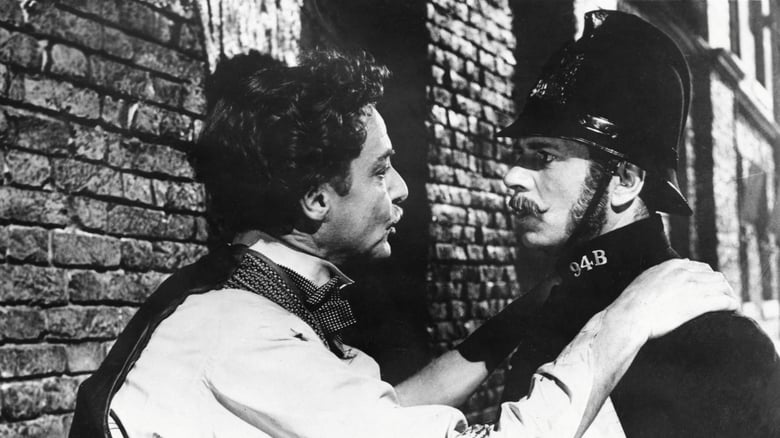
The Magic Box (1952)
Now old, ill, poor, and largely forgotten, William Freise-Greene was once very different. As young and handsome William Green he changed his name to include his first wife's so that it sounded more impressive for the photographic portrait work he was so good at. But he was also an inventor and his search for a way to project moving pictures became an obsession that ultimately changed the life of all those he loved.
Watch Trailer
Cast
Reviews
Simply A Masterpiece
Pretty Good
Memorable, crazy movie
While it doesn't offer any answers, it both thrills and makes you think.
Superb film often overlooked when we talk about the accomplishments of the late Robert Donat. Donat proved to be a fine character actor and too bad that he died so early; otherwise, there would have been more brilliant performances in store for him.This film is the autobiography of William Friese Greene, who by the account of this fine film, made the moving picture literally move by camera.The film is splendidly detailed and boasted a cast of every well known British star of that period.If you blink an eye, you don't realize that the film goes back to his first marriage. Notice that nothing is really said about what happened to his children from both marriages.Friese Greene was a kindly, devoted inventor who should never have married. He allowed his work to neglect his responsibilities as a husband and father. The man was a dreamer and Donat captured every movement of that dream.This was certainly a stellar film.
There were undoubtedly many people working on some of our most important inventions around the time they became prominent. William Friese-Greene spent his life working on the motion picture camera, and though he isn't the official inventor, he is someone who contributed his work to what became the final product. His story is told by an all-star cast (even in tiny roles) in 1951's "The Magic Box" starring Robert Donat and Maria Schell.Greene held the first patent on a motion picture camera, and financial problems, by which he was beset his entire life, caused him to sell his patent for 500 pounds. He also created a "Biocolor" system which won in a lawsuit against a system called Kinemacolor. This early color process was too expensive for commercial use, however.From what I can gather, Greene had good ideas that weren't very practical, and the film is basically about how he went from a highly successful photographer to a bankrupt inventor, and how his obsession with film and color controlled his life. Not mentioned is the fact that his son Claude Friese-Greene became a cinematographer and was very prolific in British films until his death in 1943. He continued to develop his father's color process and produced a series of travelogues in the 1920s using this system.Robert Donat is excellent, but the film is not very interesting except to spot all of the huge British stars in minor roles, such as Laurence Olivier as a bobby.Some people are fairly dismissive of Friese-Greene, and his place in the creation of the moving picture is controversial. There's no question that today he is considered an early pioneer in moving pictures and in working with color. He was in touch with Edison regarding his work, and just because the credit goes to the individual who makes a product commercial is no reason to ignore the work of others. If this film makes people aware that a credited inventor isn't always the only inventor, so be it.
For all of his dogged determination to succeed, William Friese-Greene never quite established himself firmly in the public's mind as the inventor of the first motion picture camera, THE MAGIC BOX. That honor seems to rest with Thomas Edison. But as the film goes on to suggest, it was "Willie" who developed the first camera similar to what motion picture cameras use today. The film gives credit to Edison and other inventors with Greene as "one of the first pioneers." The story is told slowly, with flashbacks, and captures the time and customs of a bygone era with careful attention to detail. And for added interest, almost every small role is played by one of Britain's most famous actors. Keep an eye out for Margaret Rutherford, Kay Walsh, Joan Hickson, Laurence Olivier, Leo Genn, Eric Portman, Richard Attenborough, Glynis Johns, and others.Maria Schell, as one of the inventor's wives, wears a perpetual smile or grin on her face which always irritates me--let's face it, she's never been one of my favorite actresses and unfortunately she's in a good many of the scenes. I wish another actress had been cast in the role of his understanding first wife.It's an interesting story, well told and extremely well acted by most of the cast with Margaret Rutherford standing out as one of the photographer's best customers and Laurence Olivier doing a fine job as the policeman called hurriedly to Donat's laboratory to witness motion pictures taken in Hyde Park and staring at the screen in amazement.Donat's illness shows in many of the early scenes where he's supposed to be a young man, so that he looks more natural in the age make-up sequences as an older chap. The age make-up makes him resemble Mr. Chips again. I thought the ending was overly sentimental and not the way I would have preferred the story to conclude.Well worth viewing.
The most enjoyable and very emotional scene was when Robert Donat (Wm. Friese-Greene) finally succeeds in producing moving images on a sheet he's hung in his studio...he runs like a madman into the street in the middle of the night desperate to find someone to witness this miracle. Who does he find? Sir Laurence Olivier..a Police Constable . Donat ushers him into his lab, sits him down and proceeds to ramble on about what he's invented. Sir Laurence, the ever vigilant and cautious policeman thinks he's some kind of nut and slowly reaches for his night stick..that's when Robert Donat flicks on the first moving pictures of Hyde Park...Olivier is flabergasted..gets up moves to the sheet and looks behind it.."That's Hyde Park!' After rambling some more Robert Donat breaks into tears..finally explaining what he has accomplished..Olivier replies "You must be a very happy man"..a terrific scene and one I'll never forget. A cameo appearance by Lord Olivier and a very memorable scene.
